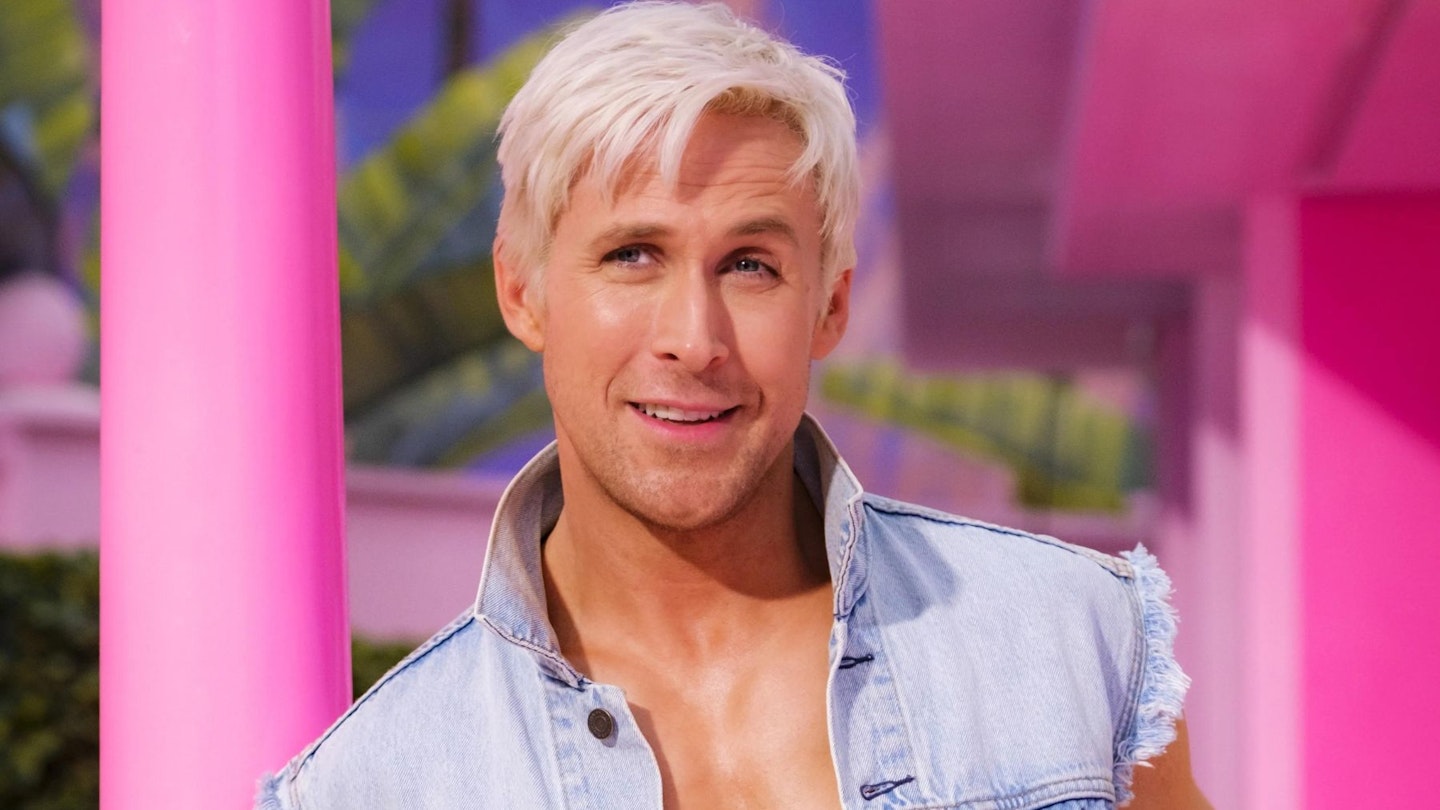The Barbie movie’s arrival has brought with it two seismic real-world effects. For one, the entire world has turned pink – everywhere you look right now, there’s a flash of fuchsia. Secondly, levels of pure uncut Kenergy have increased exponentially.Ryan Gosling’s performance as the film’s primary Ken – the singularity of no-thoughts-just-vibes himbo-dom – has taken on a life of its own, escaping the confines of the cinema to become part of the very air we breathe. Men everywhere are communing with their inner Kens (if his job is ‘Beach’, mine must be… Article? Website? Movie?) on a hitherto unknown scale. Science is yet to understand its true impact.
All of which is to say that Barbie is a film for, well, everyone – whether you identify as a Barbie, a Ken, or anywhere in-between. Greta Gerwig’s hilariously surreal toy story has, understandably, captured the imaginations of women the world over; a largely under-served audience cinematically-speaking. It’s packed with sharp gags and insightful notions on the lived experience of women.
But it's just as sharp and insightful on the role of men in society. Gosling himself, in a pre-release interview, confidently stated that “there’s something in it for The Kens”. (‘The Kens’ here, wonderfully, referring to, well, all men.)
He wasn’t wrong – as someone firmly in the Ken-ographic, I found Barbie a total delight. And yet, some men have instantly gone on the defensive about the film’s feminist themes. Gerwig’s film is, first and foremost, Barbie’s existential odyssey, as she swaps the entirely Barbie-run Barbieland for the Real World after experiencing thoughts of death and – gasp! – flat feet. But fascinating, too, is its exploration of Ken’s crisis of masculinity. Upon entering (a version of) our world, Gosling’s Ken is enthralled by a society ruled by men; where bros hype each other up at the gym, take all the highest-earning jobs, and – most thrillingly – ride horses whenever they want. Witnessing the pure, raw power of patriarchy – and of Sylvester Stallone in a fur coat – he takes the idea back to Barbieland, and rebuilds it as his very own Ken-dom. It’s not Barbie’s Dreamhouse anymore; it’s Ken’s Mojo Dojo Casa House.
Barbie finds comedic inspiration in all kinds of places – the legacy of weird Barbie-adjacent products (pregnant ‘Midge’ doll, anyone?) and parent company Mattel in particular. But once the Ken-dom takes over, much of its funniest material comes from poking fun at the stereotypical preoccupations of men: mansplaining The Godfather; having loud opinions on financial solvency; holding a weird personal investment in the release of Zack Snyder’s Justice League; displaying an affinity for trucks, and – yes – appreciating the majesty of horses.
As expected, the usual suspects – your Piers Morgans, Ben Shapiros and the like – have thrown their toys (Mattel or otherwise) out of the pram in response. Among certain conservative circles, the film has been declared ‘anti-men’ – a frankly ridiculous notion. Not only do those sublime gags work so well because, well, there’s more than a grain of truth to them, but Gerwig’s film ultimately takes Ken’s journey just as seriously as Barbie’s.
Barbie doesn’t pull its punches when puncturing the Mojo Dojo Casa House bubble. One of the film’s biggest takeaways is that toxic masculinity is a learned behaviour, patriarchy is a societal construct – and that it serves neither the Barbies, nor the Kens. By the end of the film – SPOILER WARNING! – we see that Ken hasn’t found happiness in bringing the patriarchy to Barbieland (he preferred it when he thought it was all about horses). Neither Barbieland nor the Ken-dom was a fair, perfect, or equal system. Instead, as Robbie’s Barbie tells him, his personal liberation will come from discovering who he really is – not from exerting control over others, or defining himself solely by his relationship to her. It’s Barbie, and it’s Ken. He’s Ken, and he’s enough. But discovering that inner Ken involves a certain level of letting go. If any men feel rattled – or worse, victimised – by those notions, it doesn’t exactly speak to the security of their own masculinity.
It goes without saying that it is, of course, perfectly okay to feel passionate about the importance of The Godfather to ‘70s cinema (personally, I prefer Part II with its Mamma Mia: Here We Go Again prequel-sequel approach). It’s an objectively correct opinion that the Snyder Cut is the better version of Justice League. And hey, ‘Push’ by Matchbox 20 goes off on karaoke night, even with those double-take lyrics. There’s a real difference in laughing with, not at. Barbie sits so firmly in the former camp, inviting audiences to laugh together, while drawing attention to the boxes that both women and men are often forced into. And as Gerwig’s Lady Bird taught us, love and attention are often the same thing. Her Barbie film loves Barbie, and it loves women. It loves Ken. And it loves men too.
Most importantly, Barbie is a comedy – a riotously funny one. Since Mattel can take all of those jokes at its own expense, then men absolutely can too. If you were a man and found yourself feeling personally attacked by – let’s run this back one last time – a big, pink, summer Barbie movie, then it’s probably time to get your Kenergy levels checked. They sound dangerously low. The only prescription? Another ticket for Barbie, please.
